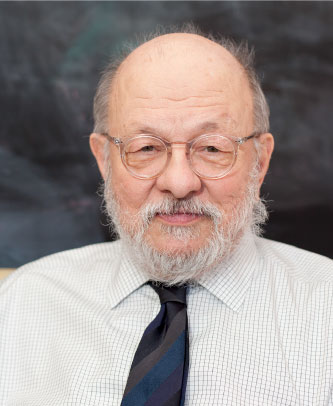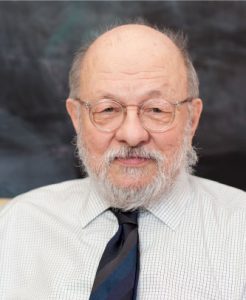
Written By Qichelle Maitland
Robert Viscusi, longtime professor, pioneering Italian American writer, and Executive Officer of the Wolfe Institute for the Humanities at Brooklyn College, died on Sunday, Jan. 19. He was 78.
Born April 4, 1941 in Brooklyn, Viscusi came to Brooklyn College with a Bachelors in English from Fordham College and an M.A. in English from Cornell. He started his career as an adjunct lecturer at BC in 1968, but his passion for writing led him to become a Professor of English at the university.
As a descendant of Italians who migrated to the Americas through Ellis Island, Viscusi made his mark focusing on the Italian-American experience in New York City and the Americas. He recognized that there was a void here in New York and wanted to create a space for the Italian American community, which at the time was subject to prejudices brought on by their immigrant status. Viscusi was an advocate for education in the community, combating the stereotype that Italian Americans were anti-intellectual.
“We became friends… travelling back and forth to Italy, advocating for the scholarships of Italian American students to further their education and study abroad,” said Vito De Simone Ph.D., a retired Italian professor at Brooklyn College. De Simone described how his friendship with Viscusi blossomed in the early ‘90s, beginning at a scholarly conference.
“The association that we created still exists,” De Simone said, “We have been sending students from the US to Italy every year.”
Later on in his career, Viscusi co-founded the Italian American Writers Association (IAWA) in 1991. As president of the organization, Viscusi worked with fellow academics to create a community for Italian American writers in the greater New York area. Viscusi’s goal was to curate a democratic association full of writers at every level; in the process, he enlightened his community, encouraging them to take pride in their identity and to use it as a tool in their writing.
“I was a young writer, I didn’t take an interest, none of us did back then really, in other writers of our cultural background,” said Annie Lanzillotto, poet, performer, and longtime friend of the late Viscusi. She first met him in the early days of the Italian American Writers Association, where she said Viscusi helped her find her voice.
“Bob took the activism to fight against the stereotypes against Italian Americans as not being literary and started the association,” Lanzillotto said. “The idea of creating an IAWA was radical, because ‘who was interested in those people?’ Many of us had self-shame, ashamed of our culture.”
Viscusi believed not only that Italian American writers were artists and intellectuals; he also believed that there wa

s a community to be formed between them.
“To a large part, because of those meetings and open mics, I met many Italian writers that way,” Lanzillotto continued. “Because of his efforts […] We came to have a writing identity, that didn’t exist before Viscusi. He unpacked what it was to be an intellectual, with an Italian identity.”
“I didn’t think of myself as an ethnic writer […] Viscusi sparked that for me. He was the Godfather.”
As the author of several books, including Astoria, which won the American Book Award in 1996, Viscusi became an inspiration to many of those around him. Viscusi valued literature and his writings made an impact on the lives of many in his field, including De Simone.
“He inspired me to do so many things, I totally depended on him,” De Simone said. “He has has been part of my life in that way, I have started writing again due to Bob’s inspirational power. His work will last.”
Viscusi was honored in a memorial service Saturday afternoon in Bay Ridge, Brooklyn. In attendance were his immediate family, closest friends, colleagues, and children. In a tearful speech, Robert Viscusi, Jr. reflected on his father’s passing.
“I had been preparing for [my father’s death] for a very long time,” Viscusi Jr. said. “What I was surprised by was how completed my father would be in his life work and his life goals. He was incredibly successful in the things that he did, because he did them with a certain amount of passion.”
Also present was George Cunningham, Professor of Africana Studies at Brooklyn College and colleague of Viscusi, who told the crowd in a eulogy, “Bob invented a better me than I would’ve been.”
“Bob was a part of a movement. He invented a field and was essential to it,” Cunningham said. “In short, Bob is irreplaceable.”
“I think what remains of him in my mind is good humor, as a person, he was a unique person. He was not above everybody else, but he was among people,” said Vito De Simone. “With him, you felt you could talk. He received you without preconceived ideas. He was open and he let you open up, and I think that is, to me, everlasting.”
Robert Viscusi is survived by his wife, Ann Viscusi, and his two children, Victoria Viscusi and Robert Viscusi Jr.
